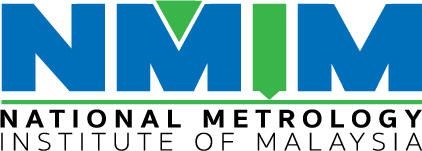/ International Memberships
- Metre Convention (Diplomatic Treaty) - since 2001
- International Committee of Weights and Measures Mutual Recognition Arrangement (CIPM-MRA) - since 2001
- Asia Pacific Metrology Programme (APMP) - since 1977
- Asia Pacific Legal Metrology Forum (APLMF) - since 1999
- ASEAN Consultative Committee Standards and Quality (ACCSQ) - since 1993
- National Conference of Standards Laboratories International (NCSLI, USA) - since 2010
/ International Comparison
The Mutual Recognition Arrangement of International Committee for Weights and Measures (CIPM MRA) is the supporting structure through the National Metrology Institutes (NMIs) in corroborate the international equivalence of their measurement standards and the calibration and measurement certificates issued by them. The technical basis of CIPM MRA is the set of results obtained for certain range of time through scientific key comparison carried out by the Consultative Committees (CCs) of the CIPM, the International Bureau of Weights and Measures (BIPM) and the Regional Metrology Organizations (RMOs). Essentially, there are two types of key comparisons:
/ CIPM key comparisons
The international scope that carried out by those participants that having the highest level of skills in related measurement. This type of comparisons are restricted to laboratories of Member States. From CIPM key comparisons, the reference value will be delivered for the chosen key quantity.
/ RMO key comparisons
The regional scope (SIM, AFRIMET, EURAMET, APMP, COOMETS, GULFMETS) organized at the scale of a region (may include the additional participants from other regions) and open to the laboratories of associates as well as Member States. From these key comparisons, the complementary information will be delivered without any change in the reference value.
/ CIPM
The CIPM relegates the task of organizing the comparisons to Consultative Committees (CCs). Each CC chooses the key quantities to be compared in its field of expertise, approve the protocols of the key comparisons, and approves their results before getting published in the key comparison database (KCDB).
/ RMO
The RMOs organize related RMO key comparisons with a number of common participants and with protocols allowing their results to be linked to those of the CC key comparison once these are treated in terms of equivalence. The nomenclature used in KCDB reflects this organization; for instance CCAUV.A-K1 is the CC comparison to which the regional equivalents APMP.AUV.A-K1, EURAMET.AUV.A-K1, etc are linked.
CC and RMO key comparisons are carried out over specific given period of time. The result then analysed and published. The procedure may be repeated, in part or in full according to need. However, different organizational scheme is required the unique international facilities that kept in BIPM, Paris. For these, comparisons are organized as ongoing the series of bilateral comparisons between the BIPM and outside laboratories, and continue as long as there is a need.
The results for both of the international comparisons will be published by the BIPM and maintained in the CIPM MRA database (the KCDB). As dedicated metrology institute, NMIM has participated in RMO key comparisons since 1996 started with vibration acceleration. Calibration and Measurement Capabilities (CMCs) declared by NMIM were respectively added on 4th October 2001 (date of MRA signature by Malaysia).
- Name of Comparison: Comparison of laboratory standard microphone calibrations. Sound pressure. Frequency: 63 Hz to 8 kHz
Project Number: APMP.AUV.A-K1
Date at NMIM: 2004 - 2005 - Name of Comparison: Vibration acceleration. Amplified charge sensitivity. Frequency: 10 Hz to 10 kHz
Project Number: APMP.AUV.A-K1
Date at NMIM: 1996 - 1997
National Metrology Institute of Malaysia (NMIM)
Lot PT 4803, Bandar Baru Salak Tinggi
43900 Sepang
Selangor Darul Ehsan
Lot PT 4803, Bandar Baru Salak Tinggi
43900 Sepang
Selangor Darul Ehsan
+6018–2121 833
Corporate Inquiries
Service Inquiries
Complaint & Feedback
Training Course Request


